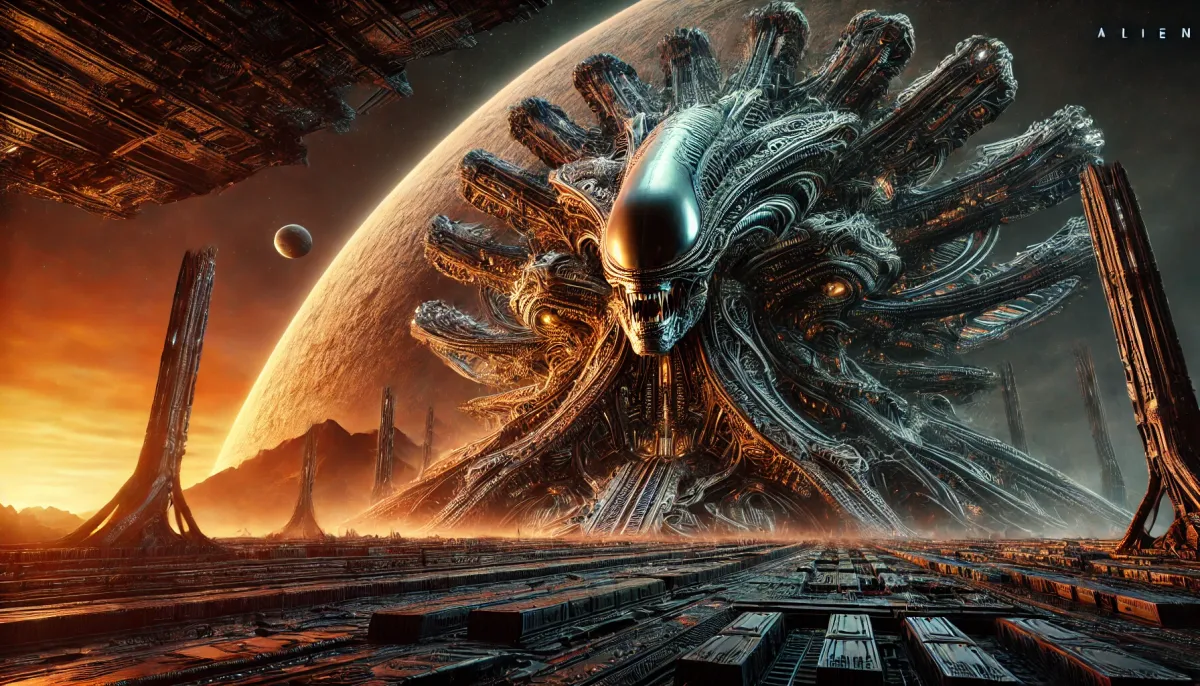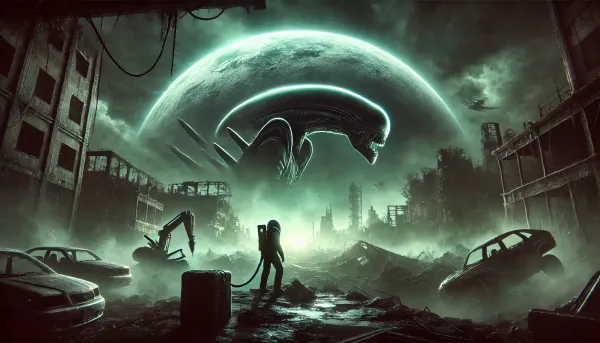The Engineers: Their Role in the Alien Universe

If you’re a fan of the Alien franchise, you’ve probably spent some time scratching your head over the mysterious Engineers. Who are they? What’s their deal with humanity? And how do they tie into the terrifying world of Xenomorphs? These towering, alabaster-skinned beings first appeared in Prometheus (2012), leaving audiences intrigued and spooked in equal measure. Let’s unravel the mystery of the Engineers and take a deep dive into their role in the Alien universe.
Who Are the Engineers?
The Engineers, also known as the "Space Jockeys," are an ancient, highly advanced extraterrestrial species. They are humanoid in appearance but much larger and more imposing—standing at around 10-12 feet tall with muscular, hairless bodies and eerily blank faces. Their technology is equally intimidating: biomechanical ships and weapons that blend biology and engineering seamlessly.
These beings are revealed to be creators of humanity in Prometheus. Archaeological evidence in the film shows that the Engineers visited Earth thousands of years ago, leaving behind star maps and influencing ancient civilizations. The big twist? They didn’t just create us out of benevolence. The Engineers’ motivations are far more complex—and sinister.
The Creation of Humanity
One of the opening scenes in Prometheus shows an Engineer sacrificing himself by drinking a mysterious black liquid. This causes his body to disintegrate, with his DNA seeding the primordial Earth. The implication? Humanity’s existence was kickstarted by this selfless (or calculated?) act. It’s poetic, fascinating, and a little disturbing. But why did they do it?
There are a few theories:
- Experimentation: The Engineers might see themselves as galactic scientists, experimenting with life on different planets to see what takes root.
- Worship: Humanity’s creation could have been an act of divine inspiration, with the Engineers playing god-like roles. However, their subsequent actions suggest they’re anything but benevolent deities.
- Arrogance: Perhaps humanity was an accidental byproduct of their tinkering, an unintentional consequence of their biological experiments.
Why Did They Want to Destroy Us?
This is the million-dollar question. Why create humanity, only to later plan our destruction? In Prometheus, the crew of the Prometheus spaceship discovers evidence that the Engineers had prepared a mission to wipe out humanity using the black goo—a substance capable of mutating or annihilating life.
Possible explanations for their genocidal intentions include:
- Disappointment: Maybe humanity didn’t live up to their expectations. We turned out to be violent, greedy, and destructive—a far cry from their ideal vision.
- Rebellion: The Engineers might have seen humanity’s technological advancements and our hubris as a threat to their supremacy.
- An Accident Waiting to Happen: It’s also possible that we stumbled upon the Engineers’ secrets (like the black goo) and they decided to eliminate the risk by wiping us out.
The Engineers’ exact motivations remain unclear, but that’s part of what makes them so intriguing. They’re not just villains; they’re complex, inscrutable beings with their own agenda.
The Black Goo: Creation and Destruction
The Engineers’ ultimate weapon, the black goo, is a bioweapon with terrifying capabilities. It can create life, mutate existing organisms, or utterly destroy them. In Prometheus, we see the devastating effects of the substance firsthand:
- Holloway’s Infection: When David spikes Holloway’s drink with the black goo, it mutates him into something inhuman before killing him.
- The Hammerpede: Worms exposed to the goo transform into aggressive, snake-like creatures.
- The Deacon: The finale shows a creature—a proto-Xenomorph—emerging from an Engineer’s body after exposure to the goo and a facehugger-like organism.
The black goo’s ability to both create and destroy underscores the Engineers’ dual role as gods and devils. It also hints at the origins of the Xenomorphs, tying the Engineers to one of sci-fi’s most iconic monsters.
The Engineers and the Xenomorphs
Perhaps the most tantalizing connection between the Engineers and the Alien universe is their role in the creation of the Xenomorphs. While Prometheus doesn’t explicitly confirm this, there’s strong evidence to suggest that the Xenomorphs were a byproduct of the Engineers’ experiments with the black goo.
The mural in the Engineers’ temple shows a Xenomorph-like creature, suggesting they had knowledge of or even a hand in creating these deadly organisms. The film’s final scene, where the Deacon creature is born, further solidifies this link. By the time of Alien: Covenant (2017), it becomes clear that David, the android, plays a significant role in perfecting the Xenomorph design using the Engineers’ technology.
This connection adds layers of horror and complexity to the Alien franchise. The Xenomorphs aren’t just random space monsters; they’re the unintended consequences of the Engineers’ ambition and hubris.
Engineer Society and Culture
While Prometheus gives us a glimpse of the Engineers’ technology and biology, it offers little insight into their society or culture. What kind of civilization creates technology that looks alive? Do they have hierarchies, governments, or religious practices?
Some clues can be inferred:
- Religious Undertones: The Engineers’ actions seem ritualistic, from the sacrificial act at the beginning of Prometheus to the temple filled with ominous statues and murals. This suggests a culture steeped in religion or at least symbolic acts.
- Biological Focus: Their technology blends the organic and mechanical, indicating a deep understanding of biology. This might explain their obsession with creation and destruction.
- Isolation: Despite their advanced technology, the Engineers seem isolated. There’s no indication of widespread colonies or interactions with other species. Perhaps their hubris led to their downfall.
What Happened to the Engineers?
By the time the crew of Prometheus arrives on LV-223, the Engineers are essentially extinct. The temple and its occupants are long dead, victims of their own bioweapon. This raises more questions:
- Did the black goo backfire? It’s possible the Engineers lost control of their creation, leading to their demise.
- Were they wiped out intentionally? Could another faction of Engineers have sabotaged them?
- Are there more Engineers out there? Elizabeth Shaw and David’s journey to the Engineers’ homeworld in Prometheus suggests they’re not entirely gone. However, Alien: Covenant paints a grim picture of their fate.
The Engineers’ Legacy
The Engineers might be gone, but their influence reverberates throughout the Alien universe. Their creation of humanity, the black goo, and possibly the Xenomorphs sets the stage for the entire franchise. They’re a cautionary tale about the dangers of hubris and unchecked ambition—a mirror to humanity’s own flaws.
But perhaps the most fascinating thing about the Engineers is what we don’t know. Their motivations, their culture, and their ultimate fate remain shrouded in mystery, leaving fans to speculate and theorize.
Final Thoughts
The Engineers are one of the most intriguing additions to the Alien franchise, offering a mix of awe, horror, and mystery. They’re creators and destroyers, gods and devils, scientists and victims of their own ambition. Whether you see them as villains, tragic figures, or something in between, there’s no denying their impact on the Alien universe.
So, what do you think of the Engineers? Are they villains, misunderstood creators, or something else entirely? Let’s keep the conversation going in the comments below!
Stay tuned for more deep dives into the Alien franchise, including explorations of the Xenomorphs, Weyland-Yutani’s dark secrets, and more. If you’re as fascinated by this universe as we are, you won’t want to miss it!




